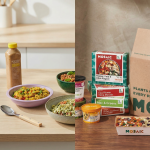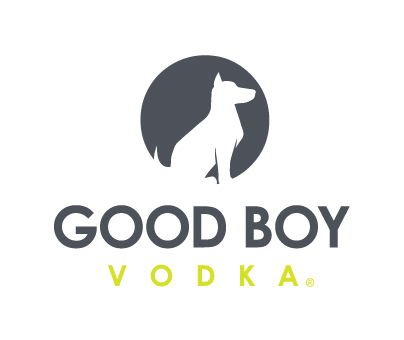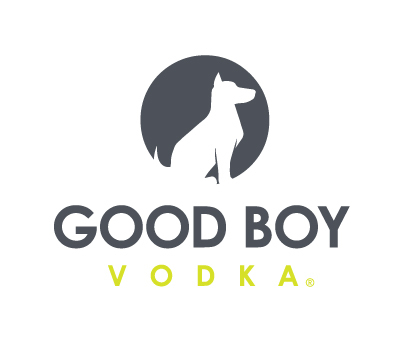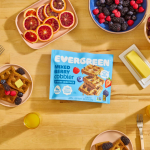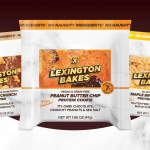The Checkout: Daily Harvest Fights For Farmers; Kroger Predicts Top 10 Food Trends For 2022
Welcome to The Checkout: an express lane for the weekly news you need to know, always 10 items or less.

Daily Harvest Fights For Farmers With New Partnership and Campaign
Meal delivery company Daily Harvest took steps to fight for underserved farming communities and call out the impacts of our current food system over the past week.
First, the company activated its “Bite Me” campaign, which includes light projection onto the USDA headquarters in Washington and two full-page advertisements in The New York Times and Los Angeles Times. The campaign’s goal is to spread awareness to the impacts of “Big Food,” which Daily Harvest cites as fueling the climate crisis.
“Big Food doesn’t protect people or the planet,” the advertisments state. “But there is a solution. More sustainably sourced fruits and vegetables. What we eat and how we grow it can either keep fueling the climate and health crises or fix them. The seed to a sustainable future begins with our food.”
Following these displays, the company announced multi-year partnerships with both the American Farmland Trust (AFT) and California Certified Organic Farmers (CCOF) to improve the viability of farms in California. The organizations together aim to create a system of technical, financial and educational support for farmers willing to transition to organic and regenerative farming practices.
“Since the beginning, Daily Harvest has been committed to transforming the food system from the ground up,” said Rachel Drori, Founder + CEO of Daily Harvest, in a press release. “Today, less than 1% of U.S. farmland is organic. This partnership is another step forward to helping drive regenerative farming practices as we aim to increase the amount of organic farmland. By assisting California farmers that have been historically underserved, giving them technical and financial assistance, and developing market opportunities, we’re making it easier for everyone to eat more real, unrefined fruits and vegetables every day.”
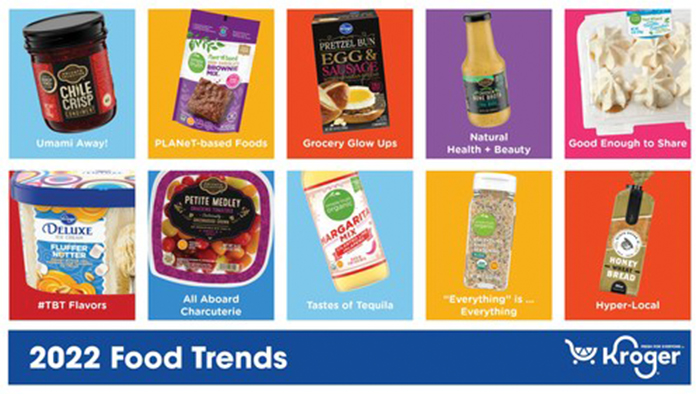
Kroger Predicts Top 10 Food Trends For 2022
Grocery retailer Kroger released its predictions this week on the top trends to influence the food industry over the next year. The report touches on shifting consumer behavior, popular flavors and products and emerging macro food trends including the rise of at-home eating and an overall push for more sustainable, nutrient-dense food.
“Unlocking these trends allows us to prepare for the year ahead, adapt our offerings, and innovate within Our Brands to ensure we continue to provide customers exactly what they need and want to delight themselves and their guests in 2022 and beyond,” said Juan De Paoli, vice president of Our Brands, Kroger’s private label portfolio, in a press release.
Other trends highlighted in the report include flavor predictions such as the rise of umami, everything seasoning and “tastes of tequila” and the increased importance of hyper-locally sourced foods and products that carry a climate-positive impact.
The report also highlighted products from Kroger’s private label brands – Simple Truth, Kroger and Private Selection – that align with each trend. The report was developed by Kroger’s Our Brands product developers and additional culinary experts, the company said.
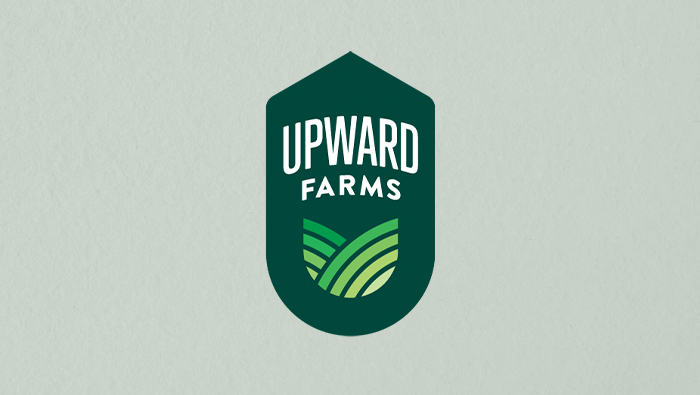
Upward Farms to Construct “World’s Largest” Growing Facility In Pennsylvania
Indoor aquaponic vertical farm operation Upward Farm announced this week that it plans to construct a 250,000 sq. ft farming facility in Luzerne County, Pennsylvania. The new facility, which reportedly will be fully-operational by early 2023, will grow microgreens for local distribution as well as “sustainably raise” hybrid striped bass.
“Farming is one of the sectors that’s both highly exposed to the perils of climate change and one of its key drivers,” said Jason Green, CEO & Cofounder of Upward Farms, in a press release. “Solutions for food production that are good for people and the planet are sorely needed. With the construction of the world’s largest vertical farm — our third aquaponic vertical farm overall — we’re demonstrating the power of nature and nurture, adding our proprietary Ecological Intelligence to the accelerating trend of indoor and vertical farming.”
According to Green, the new farm will distribute its products solely to the Northeast to support its focus on localized production, citing that 90% of greens are grown on the West Coast and the same percentage of fish is imported to the country. The company said the new facility is set to reduce water and land use by 95%, conserve over 100 million gallons of water, 120 acres of land and eliminate 1.7 million food transportation miles per year.
“With this new facility, we’ll be able to reach some of the most populous areas of the US, and nearly 100 million Americans, within a single day of distribution versus the week it can take to receive products from the west coast,” Green said in the release. “This is a local success story with massive global implications for how and where food is grown, and the next generation of manufacturing technology.”
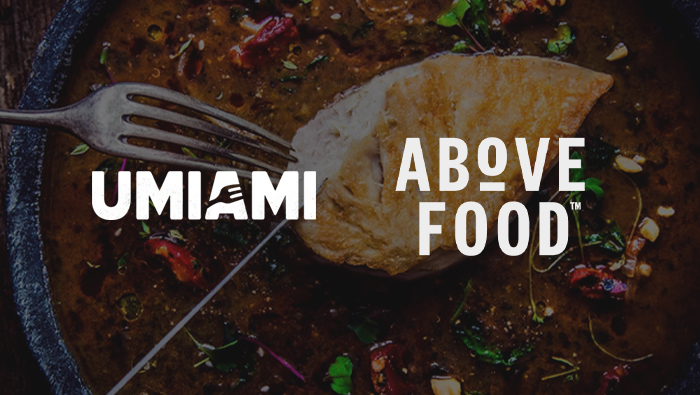
Above Food and Umiami Partner To Develop Whole Cut Plant-based Meats
Plant-based food maker Above Food and food technology company Umami announced this week they have teamed up to produce whole cut plant-based meat and fish products with a focus on mimicking the texture of the traditional cuts. Additionally, the two companies are set to create a collaborative R&D process while integrating Above Food’s proprietary proteins and scale production.
“The mainstream production techniques for plant-based meats have had significant limitations on size and texture, until now,“ said Above Food President and Co-Founder Martin Williams, in a press release. “Umiami has cracked the code, meaning it can create a thick, fibrous whole cut of meat, beyond the typical patties, sausages and bite-size portions consumers are accustomed to right now.”
Umami, which is based in France, said this partnership will help it grow its North American network and allow the company to “expand beyond soy,” which it has previously used to create muscle textures. According to Umami, this partnership is a significant step towards its goal of integrating nutrient-dense, sustainably-grown plant-based ingredients into its production process.




